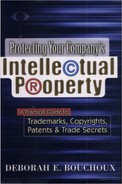Using Intellectual Property Assets to Increase Revenue
Intellectual property can be bought, sold, and licensed just as any other asset can. Rather than develop a software program, a company may choose to buy it from another. In fact, companies have been known to purchase certain assets or business divisions to make themselves less attractive to aggressors, who may then encounter antitrust objections if they attempt to acquire the first company.
Companies that no longer use certain assets should consider selling them outright. The sale of a company or of most or all of its assets is accompanied by a thorough review by the buyer, called the due diligence review. The buyer will want to know what trademarks, copyrights, patents, and trade secrets the company owns, which it has licensed to or from others, and whether any claims have been made regarding such assets.
Companies can license their intellectual capital assets to others to use. Agreements for such licenses should be drafted carefully to ensure that the user's rights are limited and that the owner has the right to control the use of the assets and recover the assets in the event of a default. Such licensing arrangements can be used to produce a continuing source of revenue. License fees can be lump sums or royalty arrangements, in which case fees generally are a percentage of sales of the licensed products or services. In some cases companies obtain additional revenue from their trademarks by licensing the marks for use in connection with related products. For example, Kodak licenses the use of its trademark to a contact lens manufacturer, and the MELITTA® mark, used to identify coffee filters, has been licensed to a coffeepot maker. In each case the trademark owner receives royalties arising out of the licensing arrangements.
Intellectual property can also be used as security for the performance of obligations or repayment of loans. Just as real property often is pledged by a borrower to ensure that the lender will have an asset to seize if the borrower defaults in repaying the loan, intellectual property assets, including trademarks, copyrights, and patents, are increasingly being pledged as collateral. In the event of a default, the secured party then has the right to take possession and ownership of the trademarks, copyrights, or patents. In a novel financing arrangement in the mid-1990s, pop star David Bowie sold bonds to raise money to finance a future concert tour. The bonds were collateralized by projected revenue from the tour, which depended on and used Bowie's copyrighted music. Thus, intellectual capital can be sold, licensed, or used as security to increase income for its owner.
Finally, some companies have begun donating patents and other intellectual property to universities and research institutions. For example, Ford Motor Company donated $40 million of patents in 1999. In most cases, the patents donated are no longer central to the donor's core business but are valuable to the donee. The donation generally is tax deductible and promotes the donor's image and reputation.
A number of Web sites operate as intellectual property bazaars or virtual marketplaces where companies can value, sell, or license their intellectual property. These sites include www.yet2.com, www.pl-x.com, http://valuationcorp.com, and www.Ipnetwork.com. A company's competitors and customers may also serve as potential buyers or licensees of the company's valuable intellectual capital.
